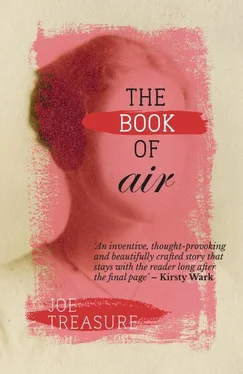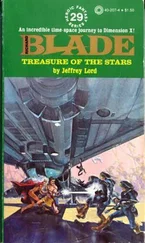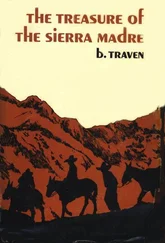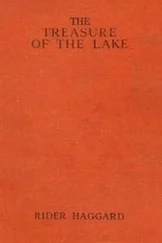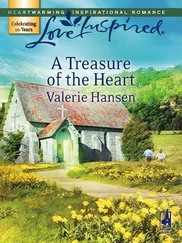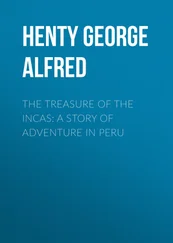I went with Dell this morning to fetch water from the river. I work with her every day now. When my limbs ache and my head is fogged from labour I find I can forget my troubles. Dell loads the bowls and bottles on a cart and wheels it through the forest paths. Their name for the river is the canal, and a strange looking river it is, as straight as a furrow and edged with bricks, except where its walls have tumbled in. We walked beside it for a while in search of blackberries, pulling the water cart among the ruined towers. Here and there the flow is held up by great walls where the endtimers built bridges and left no space underneath for the water, so it must find its way through cracks and crevices to spray down like piss buckets emptied from cottage windows.
When we’d filled our pans with blackberries, Dell said she had something to show me. She took me off the path towards a building that stands high as the Hall, though breached near the roof. She pulled aside a crumbling piece of iron that left its red stains on her, and there was a break in the wall, enough for us to crawl through on our bellies.
We stood up in a vast room. A staircase rose curving towards patches of sky. We walked among aspens, stepped over rusting roof beams and branches where woodlice lived. The air had the forest smell of dank earth and thick unweeded growth. The deep din of the woodland was dulled by the walls, but a startled jay rose up with a clamour and a pair of squirrels leapt away out of sight. Climbing things covered the walls and straggled above us from the galleries – ivy and bindweed and long flowered honeysuckle. Dell took a handful where she stood and pulled it aside. And I caught the stink of mildew. There were shelves tightly packed with what I took at first for narrow boxes, each a different colour, each with the faded marks of writing that I strained to read, turning my head to follow the run of letters. She reached out a hand, pulled a box from the shelf and gave it me. An edge of it split and broke into layers like onion skin. And I saw at last what it was, what they all were, what I think they had been all along to my eyes, while my mind had said this wasn’t possible – a flood, a dizzying bee swarm of books, an orchard branch so laden you’d fear it would break.
Not four books only, then, with the Book of Death. Not five even with my own secret book. Not ten or twenty. As I pulled aside more strands of ivy, I saw enough for every person in the village each to have one. And more than that – more than I knew how to count.
I reached for another and opened it, stiff and cracking, to a page as ridged as a barley field when the wind blows. Another would hardly open, lying damp in my hands, its edges ripe with mould. I found pages on which the ink had faded almost to nothing, pages that were more hole than paper, and a nest of mice that fell squealing among the roots at our feet and scattered into corners.
But my eyes had found a text. And in another book a second text. And every text was a voice speaking through my voice.
‘The world seemed getting larger round poor Gwendolen, and she more solitary and helpless in the midst.’
‘Because what’s the use of learning that I am one of a long row only – finding out that there is set down in some old book somebody just like me, and to know that I shall only act her part; making me sad, that’s all.’
‘I tried to breathe but my breath would not come and I felt myself rush bodily out of myself and out and out and out and all the time bodily in the wind. I went out swiftly, all of myself, and I knew I was dead and it had all been a mistake to think you just died.’
‘You pierce my soul. I am half agony, half hope. Tell me not that I am too late, that such precious feelings are gone for ever. I offer myself to you again with a heart even more your own, than when you almost broke it eight and a half years ago.’
‘And this also, said Marlow suddenly, has been one of the dark places of the earth.’
‘As she unfastened her brooch at the mirror, she smiled faintly to see her face all smeared with the yellow dust of lilies.’
‘Agnes. Please, Agnes. What is it? What are you mouthing on about?’ Dell’s voice came to me as if from another place, though she stood beside me, pulling at my arm.
‘All these books,’ I said. ‘No one knows. They think. The Mistress says. Everyone says.’
‘But what are they? Why do they matter?’
‘These people, these thoughts. All this time they’ve been here waiting. This sadness and hoping, this darkness and dust of lilies, this rushing into the wind. And they’ll go on waiting, and being found and being lost again. As if they don’t mind – to be read, not to be read.’ Truly, I didn’t know what I meant.
And still my mind is a whirl of questions. What are these books? What is this book I write in now? Did everyone among the endtimers have her own book to tell her own story in, as I have mine? Who allowed them this? The child in my belly pushes up against my heart. I breathe fast and shallow but find no air. The world is not as I thought it was.
‘Who says these words, though, Agnes?’
I couldn’t answer.
I slept – perhaps just for a moment – and dreamt that Walter, wandering through the house, peered in at our bedroom and found me and Abigail having sex. He blessed us in the name of Our Lord BJ Choudhry. Then there was a child, a little girl. And it was our child, Caro, yours and mine.
I remember the print-outs from your scan – those shadowy images that told us we were going to have a girl. By the following morning we’d stopped looking, and could watch only the repeated footage of paramedics carrying the bodies from the outhouse at Elmbridge Farm, and interviews with the neighbours who’d observed suspicious comings and goings, and the mother of one of the dead, weeping for her baby girl who’d shown such promise as a gymnast. They’d found incongruous pictures of Penny in her Random days – party girl Penny Farthing – and one with a dead-eyed look that hinted at drug abuse. There was nothing of Troy but a blurred picture of a student in a mortar board with a sneer for whoever held the camera.
Meanwhile the Nissan had led the police to me and I was telling them everything I knew. The journalists were all over our building, pumping the staff and the other residents for gossip, crowding the gate to press their lenses to my windscreen. The only way I could protect you was to let you stay a prisoner in the flat, while I attended to business. At first it looked as if they meant to cast me as an accomplice – the one who’d supplied the weapon. But it didn’t take them long to spot the ironies. A property developer with a gas-guzzling SUV in the middle of a stand-off with environmentalists – I looked less like an accessory than the prime target. So off they went to cosy up to the Urban Diggers and get the dirt on the crazies, the environmentals, the nutroast nutjobs. They were desperate for more on the family connection, but they never found the Jesus bus. The only thing Penny and I had in common was a mysterious past – we’d both popped up from nowhere.
For a couple of days Simon gave them a new angle – the Elmbridge boy found wandering with an uneaten sandwich in his satchel and a scrawled note pinned to his coat saying taek care of mi boy its not his falt . And I got the full measure of the state of education in Hebron, and a fresh stab of remorse for leaving my sister there. For me Simon’s survival was a miracle. I’d waited for the call to identify the body of a child and here he was alive and unharmed. And you were heroic, Caroline. You hated Penny for what she’d done to me, but you took Simon in without a murmur.
Читать дальше
